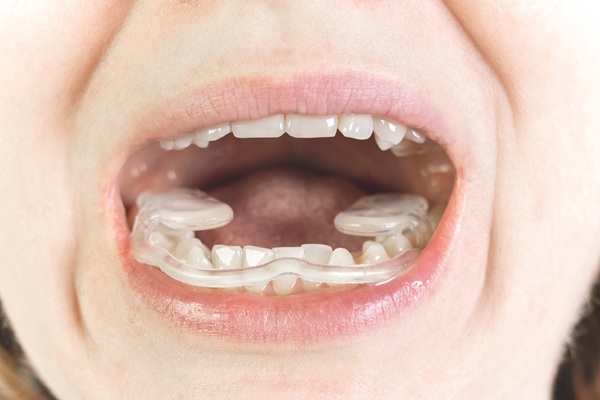How a TMJ Dentist Can Help Relieve Jaw Pain and Restore Comfort

Jaw pain, headaches, and difficulty chewing can severely impact daily life. Fortunately, a TMJ dentist offers specialized care to diagnose and treat disorders of the temporomandibular joint (TMJ), providing relief and restoring comfort. These dental professionals specialize in identifying the underlying causes of TMJ disorders and developing treatment plans tailored to your specific needs.
Understanding TMJ disorders
The temporomandibular joint connects the jawbone to the skull, allowing smooth movement for everyday functions, such as talking, chewing, and yawning. However, it is possible for this function to be adversely affected by a TMJ disorder. TMJ disorders can result from the following:
- Injury or dental trauma
- Teeth grinding (bruxism)
- Arthiritis
- Jaw misalignment
- Dental procedures
- Viral infections
Common symptoms include jaw clicking, stiffness, facial pain, and tension headaches. During a consultation, a TMJ dentist thoroughly evaluates these symptoms, distinguishing TMJ issues from other conditions that may cause similar discomfort.
Diagnostic techniques used by a TMJ dentist
A TMJ dentist uses a combination of clinical examinations and advanced imaging to assess the joint and surrounding muscles. They may also utilize dental imaging technology, such as X-rays, to identify structural issues. They will likely perform a jaw movement analysis to detect functional or structural abnormalities. This information allows the dentist to make an accurate diagnosis and design an effective treatment plan that targets the root cause rather than merely addressing the disorder-related symptoms.
Non-surgical treatment options
In many cases, it is possible to manage TMJ disorders and symptoms without surgery. A TMJ dentist may recommend treatments such as:
- Custom mouthguards to prevent teeth grinding and clenching
- Physical therapy exercises to improve jaw mobility
- Medications to reduce inflammation and pain
- Stress management techniques
- Avoiding excessive jaw movements
These non-invasive approaches to TMJ disorders can provide significant relief while minimizing risk and recovery time.
Advanced therapies for severe cases
In cases where conservative measures are insufficient to address TMJ symptoms, the TMJ dentist may recommend advanced therapies. These can include minimally invasive procedures such as arthrocentesis, which cleans and lubricates the joint, or targeted injections to reduce inflammation. For structural abnormalities, corrective dental work, orthodontics, or surgical intervention may be necessary. Nevertheless, a personalized approach ensures that each patient receives the most appropriate care for their condition.
Long-term benefits of TMJ treatment
Addressing TMJ disorders early with the guidance of a TMJ dentist can prevent chronic pain and deterioration of the jaw joint. Proper treatment restores normal jaw function, reduces discomfort, and improves overall quality of life. Patients often report relief from headaches, reduced facial tension, and an improved ability to eat and speak comfortably. Ongoing monitoring and follow-up care help maintain long-term results and prevent recurrence.
Schedule an appointment with a Irvine TMJ dentist
A TMJ dentist provides targeted solutions for jaw pain and related discomfort. By addressing the root causes of TMJ disorders, these dental professionals help restore your comfort, oral function, and overall well-being, making everyday activities more manageable and free of discomfort. Call our Irvine office today to learn more about our services or to schedule a consultation.
Request an appointment here: https://www.lightbreezedental.com or call Light Breeze Dental at (949) 274-4719 for an appointment in our Irvine office.
Check out what others are saying about our dental services on Yelp: TMJ Dentist in Irvine, CA.
Recent Posts
A TMJ Dentist is a dental professional who helps diagnose and treat problems with the temporomandibular joint (TMJ), which connects the jaw to the skull. Issues with this joint can cause pain, stiffness, and discomfort in the jaw. They can also lead to headaches, earaches, and trouble chewing. Visiting a TMJ dentist is an important…
If you experience soreness or pain in the jaw, you may want to talk with your dentist about TMJ treatment and whether the condition is causing your pain or other issues. Temporomandibular joint dysfunction (TMJ) is a serious condition that causes stiffness in the joints of the jaw, pain, soreness, swelling, and loss of movement.…
A TMJ dentist focuses on treating temporomandibular joint disorder. Temporomandibular joint disorder, or TMJ disorder, is a condition that occurs when the socket that connects your lower jaw and skull is misaligned or out of place. TMJ disorder is known to be commonly associated with constant headaches, migraines, ringing in the ears, teeth grinding and…
Currently having jaw problems? Wondering if you have TMJ? You just might be right, although the correct term would be TMD. While this inconvenient jaw issue has affected millions of people over the years no one is really sure of the true causes of this popular dental syndrome. Although, the following list is believed to…


